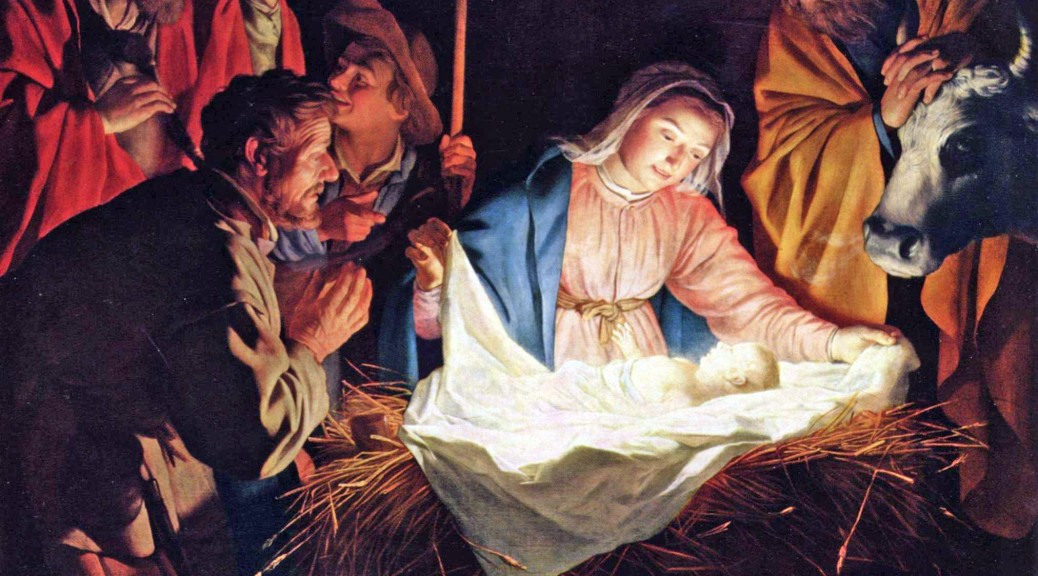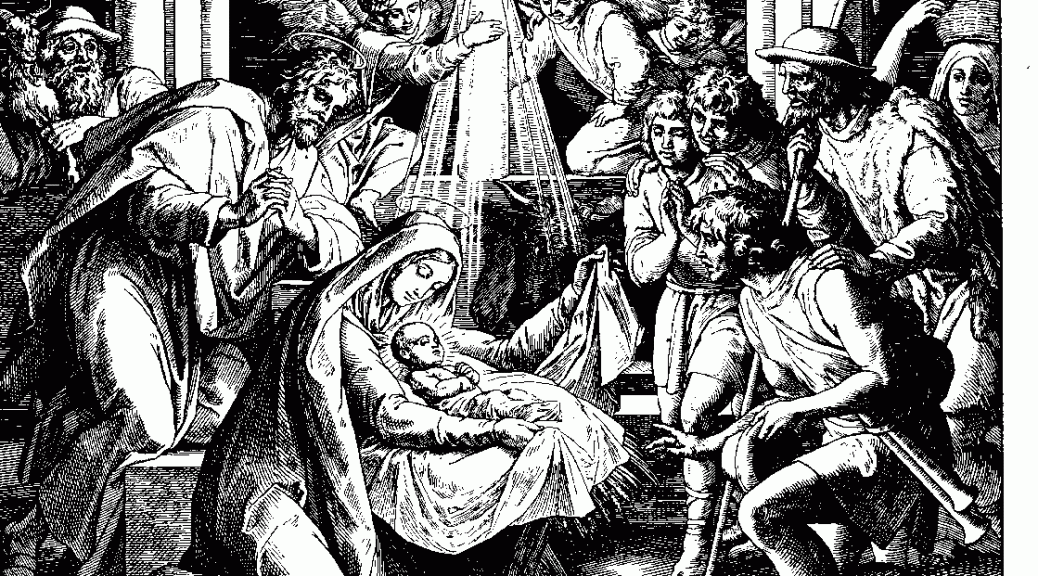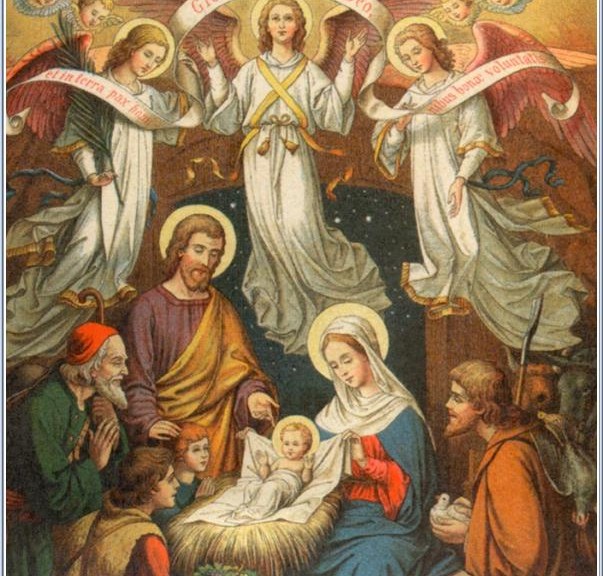We began this series by examining the word virgin in Isaiah 7:14, and continued by looking at the historical aspects surrounding the verse, and finally, we are going to tie this all together as to why this chapter is about not only the Messiah, but also why there had to be two advents.
To do this, we have to actually back up to chapter 6, which begins with Isaiah seeing the Lord, to Whom he cries out:
Isaiah 6:5 Then said I, Woe is me! for I am undone; because I am a man of unclean lips, and I dwell in the midst of a people of unclean lips: for mine eyes have seen the King, the LORD of hosts.
He is, no doubt, thinking of when Moses was allowed to see only the hinder parts of God least he die.
Isaiah 6:6-7 Then flew one of the seraphims unto me, having a live coal in his hand, which he had taken with the tongs from off the altar: (7) And he laid it upon my mouth, and said, Lo, this hath touched thy lips; and thine iniquity is taken away, and thy sin purged.
This could be a study in and of itself, but for the sake of brevity just note that his sins are forgiven.
Isaiah 6:9-10 And he said, Go, and tell this people, Hear ye indeed, but understand not; and see ye indeed, but perceive not. (10) Make the heart of this people fat, and make their ears heavy, and shut their eyes; lest they see with their eyes, and hear with their ears, and understand with their heart, and convert, and be healed.
God told Isaiah that they would not understand. Understand what? Well, the next several chapters, especially chapters 7-14, if not all of what He would say, but it is particularly important to note that Jesus tells us that this is part of the first advent. Observe:
Matthew 13:10-16 And the disciples came, and said unto him, Why speakest thou unto them in parables? (11) He answered and said unto them, Because it is given unto you to know the mysteries of the kingdom of heaven, but to them it is not given. (12) For whosoever hath, to him shall be given, and he shall have more abundance: but whosoever hath not, from him shall be taken away even that he hath. (13) Therefore speak I to them in parables: because they seeing see not; and hearing they hear not, neither do they understand. (14) And in them is fulfilled the prophecy of Esaias, which saith, By hearing ye shall hear, and shall not understand; and seeing ye shall see, and shall not perceive: (15) For this people’s heart is waxed gross, and their ears are dull of hearing, and their eyes they have closed; lest at any time they should see with their eyes, and hear with their ears, and should understand with their heart, and should be converted, and I should heal them. (16) But blessed are your eyes, for they see: and your ears, for they hear.
Isaiah 6:11-12 Then said I, Lord, how long? And he answered, Until the cities be wasted without inhabitant, and the houses without man, and the land be utterly desolate, (12) And the LORD have removed men far away, and there be a great forsaking in the midst of the land.
This means that they are going to be taken all away, and they are not going to understand until AFTER their return. They still have not returned, not all, and certainly not the House of Israel, that is to say the ten northern tribes.
Take special note of this final verse of the chapter:
Isaiah 6:13 But yet in it shall be a tenth, and it shall return, and shall be eaten: as a teil tree, and as an oak, whose substance is in them, when they cast their leaves: so the holy seed shall be the substance thereof.
This translation really doesn’t cover what the Bible is saying here because we don’t eat teil trees or oaks, as they are deciduous trees, and the word eaten, here, is more along the lines of “used up,” not “consumed”. What it is really saying is that the trees (note there are two trees for both the houses of Israel and Judah) are going to shed their leaves, and their substance will be in them, just like how a deciduous tree moves it’s sap, etc., down into the roots (remember the root of Jesse?) to survive winter or a dry season.
“So the Holy Seed shall be the substance thereof.” This is the exact same seed God spoke about, and has been protecting, way back since the Garden of Eden.
Genesis 3:15 And I will put enmity between thee and the woman, and between thy seed and her seed; it shall bruise thy head, and thou shalt bruise his heel.
And that, my friends, is the first prophecy concerning Jesus Christ.
This brings us back to chapter 7.
Isaiah 7:3 Then said the LORD unto Isaiah, Go forth now to meet Ahaz, thou, and Shearjashub thy son, at the end of the conduit of the upper pool in the highway of the fuller’s field;
When God gives us a specific place and specific people, it’s time to open those eyes. A fuller’s job was to cleanse impurities from cloth or wool, and the fuller’s field is where they did their work. So, why did God tell him to speak to Ahaz here? It was to let us know that all the crud is going to get scrubbed, that is to say the wickedness and sinful behavior will be removed. If we then pair that location with Isaiah’s son, Shearjashub, which means, “a remnant will return,” it gives us the message that Israel shall return after they are cleansed.
Isaiah had two sons (that we know of), and this is the only place this son is mentioned. His other son, Mahershalalhashbaz, which means, “hastened-booty speedy spoil,” is only mentioned at the beginning of chapter 8. Most students of the Bible recognize that the second child, Mahershalalhashbaz, is the sign promised to Ahaz, and that the name itself (given by God in Isaiah 8:1) tells us how the Assyrian will come.
Isaiah 8:3-4 And I went unto the prophetess; and she conceived, and bare a son. Then said the LORD to me, Call his name Mahershalalhashbaz. (4) For before the child shall have knowledge to cry, My father, and my mother, the riches of Damascus and the spoil of Samaria shall be taken away before the king of Assyria.
What most people read over is:
Isaiah 8:18 Behold, I and the children whom the LORD hath given me are for signs and for wonders in Israel from the LORD of hosts, which dwelleth in mount Zion.
That is “children,” plural. This means both children, and Isaiah (which means, “Yahaveh’s Salvation.”) himself. What does that mean if we put all of this together? It means, “From Yahaveh’s Salvation (Isaiah) comes two children, Shearjashub and Mahershalalhashbaz.” This tells us that God’s salvation plan has two parts, and if we pay attention, we will know that means two advents. That is why John asked:
Luke 7:19 And John calling unto him two of his disciples sent them to Jesus, saying, Art thou he that should come? or look we for another?
He didn’t ask if we should look for another because he didn’t know who Jesus was at this point: he had already baptized Him, and the Holy Spirit announced who He was. He asked because he knew that God’s salvation plan had TWO parts.
Isaiah 9:6-7 For unto us a child is born, unto us a son is given: and the government shall be upon his shoulder: and his name shall be called Wonderful, Counsellor, The mighty God, The everlasting Father, The Prince of Peace. (7) Of the increase of his government and peace there shall be no end, upon the throne of David, and upon his kingdom, to order it, and to establish it with judgment and with justice from henceforth even for ever. The zeal of the LORD of hosts will perform this.
These verses do not describe Mahershalalhashbaz. That child was only the type to prove the words of Isaiah were true. I didn’t really want this article to turn solely into a post about the two advents (I feel that should be a topic in a of itself). I began by just wanting to address some of the criticisms that the word, “virgin,” receives, and it has turned into all of this. I hope you have learned something worth-while, and it has caused you to look deeper into His word for yourself. I can’t help but close with these two verses:
Zechariah 9:9 Rejoice greatly, O daughter of Zion; shout, O daughter of Jerusalem: behold, thy King cometh unto thee: he is just, and having salvation; lowly, and riding upon an ass, and upon a colt the foal of an ass.
This is the first advent.
Zechariah 9:10 And I will cut off the chariot from Ephraim, and the horse from Jerusalem, and the battle bow shall be cut off: and he shall speak peace unto the heathen: and his dominion shall be from sea even to sea, and from the river even to the ends of the earth.
This is the second advent.
Until next time, May God bless you and keep you.









